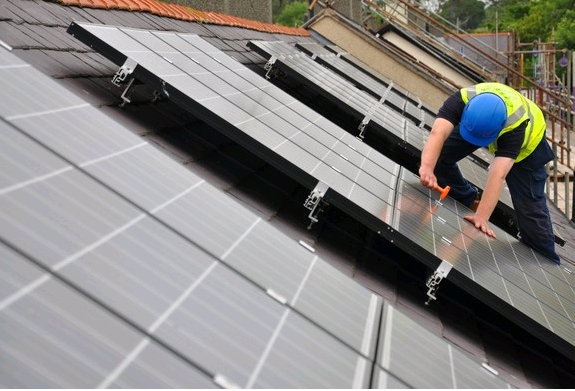
Dulas sees an opportunity in the new build sector for solar, but has recorded considerable growth in its market optimisation business. Image: Dulas.
Renewables company Dulas returned to profit last year as it recorded triple-digit growth in its asset optimisation business.
Last month the Powys-based firm filed its results for the year ended 31 December 2015 reporting that it had made a net profit for the year of more than £57,000, turning around a circa £76,000 loss the year before.
Speaking to Solar Power Portal, Dulas marketing director Alistair Marsden attributed the turnaround to soaring growth in its asset optimisation business which is targeted at asset owners of solar PV and other renewables looking to improve their performance.
Marsden explained that after concluding an introspective analysis of the business, Dulas sought to diversify their offering into optimisation after finding that the bulk of their work fell into the high turnover, low margin category.
A significant portion of the UK’s solar portfolio has been connected under time constraints with Renewables Obligation deadlines occurring on 1 April for each of the last three years. This, Marsden said, had left a considerable number of assets being connected “inefficiently” and left asset owners seeking to optimise them for better returns.
To cater for that demand, Dulas has restructured internally. Its internal sales teams has been repurposed and Marsden explained that the company had been “proactively recruiting” in Scotland having witnessed some “quite interesting” activity in the area.
Marsden said the change of tack was “more a realignment” than an entirely new strategy, but added that a “tactical decision” had been made to try a new route to market. The company now looks to forge and nurture relationships with asset owners and larger utilities, and has turned to communications agency Tamarindo to assist them.
Outside of Dulas’ optimisation business, Marsden also foresees growth in the new build sector and the group is continuing to forge new links with larger contractors and house builders.
However Marsden paints a bleaker future for more traditional solar sectors, particularly residential, which he beleives will continue to contract next year unless chancellor Philip Hammond announces surprise support as part of next week’s Autumn Statement.

